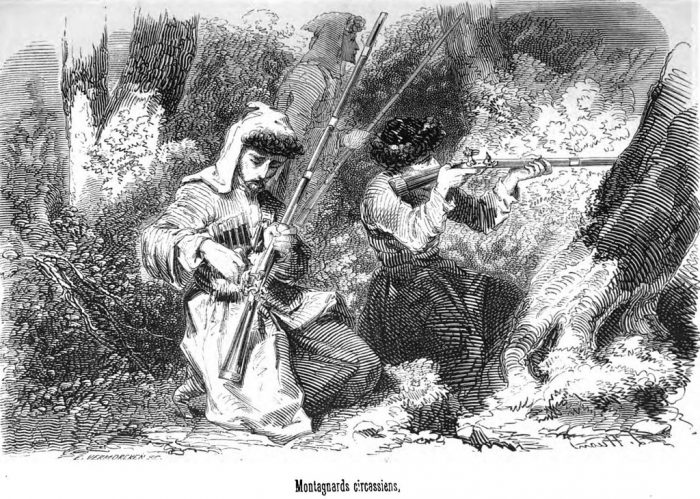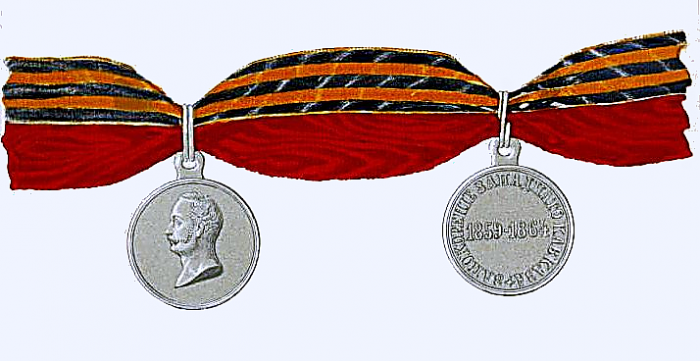Colonialism, Imperialism, and the Occupation of Circassia
Adel Bashqawi
May 14, 2024

Introduction
Colonialism and Imperialism definition, according to the “Merriam-Webster” dictionary, indicates the difference between the two terms. “In contexts dealing with the domination of a people or area by a foreign power, colonialism and imperialism are often used together with no real distinction in meaning. Used separately, however, each of these words can take on a slightly different emphasis. Colonialism comes from colony, and tends to be applied in contexts addressing the effects that colonialism has on the lives of those living in colonies. Imperialism is closely related to empire and therefore tends to place more emphasis on the ruling power and its intent to expand its dominion, as well as on the expanded empire itself, with its distinct parts subsumed under the banner of the dominating force.”
However, both terms indicate tyranny, the restriction of freedoms, and the elimination of independence, based on traditional and primitive foundations and methods in war and conflict between colonial empires in seeking to control the homelands of others, and control the destinies of peoples and nations, without paying attention to humanitarian standards and human rights, as well as respecting the rights of peoples, and the targeted nations. Knowing that Circassians are characterized by keeping their promises, and aspire to mercy, justice, and freedom for themselves and others.

The Circassian Example
— It is well known that the Russian Empire was the responsible party, which launched a war that was nothing more than an implementation of the scorched earth policy. The colonial state represented the ugly face of the Russian aggressors, by waging war on the neighboring nations. The greedy Tsarist Russian Empire was led in its ruthless war of extermination by paranoia. Abnormal behavior that reflects committing crimes and massacres to annihilate human beings and devastate humanity.
— In the midst of recklessness, ferocity, and a false sense of moral and cultural superiority, they tend to accuse the victims and persecuted of the wrongdoings of the invaders. The occupiers have on numerous occasions violated humanitarian values and norms. It is truly unfortunate that the dominated and miserable nation has either been murdered, ethnically cleansed, exterminated, or deported far from the original places of residence of its people, when Circassians were leaving their villages and towns. Not to mention the division of the non-Russian homeland into administrative authorities headed by Russian military figures. Therefore, the Circassian homeland was arbitrarily annexed to the Russian state.
— The homeland of the Circassians has been devastated, and the Circassians have been exposed and they are still susceptible to a comprehensive disaster. Yet they are at risk of assimilation and integration with other nations. Occupied and ignored by racist and brutal invaders, the Russian unjust aggression was concluded with a military parade of Russian military troops symbolizing the victory of the Russian Empire and the end of the Russian – Caucasian War in Sochi, the last Circassian capital, on May 21, 1864. The Russian Empire had no respect for the rule of law and human rights through its brutal behavior.

Geographical Proximity
— In the approach of planners in the expansionist Russian Empire in the eighteenth and nineteenth centuries to the issue of seizing Circassia and the rest of the peoples and nations of the North Caucasus, the colonial mentality reached the reality of the feasibility of this control, not only due to geographical proximity, but also because its directly adjacent to the Russian frontier and geographical areas that had been previously controlled.
— Colonialism, that is, the occupation itself, its tools and its repercussions, worked hard to erase the features of basic and historical national identity, and to create sectarianism and societal divisions. In other words, colonialism reinforced and encouraged the policy of “divide and rule” among members of a single nation when it planted proxies and agents. While the goal of the occupied peoples and nations is to obtain, under any circumstances, freedom, the right to self-determination and national independence.
— Malicious intentions included the extermination, displacement, and destruction of the Circassian homeland, which included a stifling naval blockade. The ultimate goal was to annex Circassia to the Russian colonial state. All of that took place, in the midst of total international silence. The European countries failed to act. Not to mention the regional countries, especially the Ottoman Empire, which was extremely weak; however, it benefited greatly from settling the deportees in remote areas of the empire and involving them in its losing wars.
— The Ottomans were interested in recruiting deportees and their children into its army and paramilitary units. The military and paramilitary units and forces have been involved in missions imposed in different parts of the country, and according, some reports and sources, to implement unethical, inhumane, and even unscrupulous policies and behaviors. Knowing that the Ottoman forces were composed of many nationalities, and everything that resulted from their operations and wars was considered the official policy of the Ottoman state.

Leaders who Committed Crimes
— It is well-known and proven beyond doubt that the mentioned herewith, empress and emperors are criminally accountable for the crimes committed, in addition to the Russian government high-ranking officials and the Russian Army commanders and generals. They bear direct responsibility for planning and approving the colonialist settler wars and the tragedies incurred by the afflicted peoples and nations, who bore invasion, occupation and annexation. They were destroyed and exterminated whether partially or completely.
“Empress Catherine II 1762–96
Emperors:
Paul 1796 — 1801
Alexander I 1801 — 25
Nicholas I 1825 — 55
Alexander II 1855 — 81” [1]
— It is worth noting that during the era of the Soviet Union and what is currently called the Russian Federation, they worked to preserve the results and repercussions of the occupation and not to return legitimate rights to their rightful owners. In addition to ignoring the right to self-determination.
— The infamous criminal, cruel and murderous Russian imperial army generals and emperors behaved with unparalleled brutality. They even participated in acts of extermination and unspeakable cruelty. Their names will be engraved in history, in the annals of tyrants, fascists and criminals who committed beyond description savagery.
— The perpetrators of atrocities included but were not limited to crimes of invasion, murder, occupation, genocide, ethnic cleansing, and forced deportation are still honored and immortalized by the Russian authorities. The Russian officials continue to honor them, erect and build statues and memorials in their evil memory. Some of them are Count Nikolay Yevdokimov, Dmitry Milyutin, Aleksey Yermolov, Grigory Zass, and Governor of the Caucasus and Grand Duke Mikhail Nikolayevich.
— Ironically, there are those who tend to belittle humanity according to the colonial mentality. When someone comments about killing and extermination of innocent people, he says that these killers are not the only ones who killed or are killing innocent people, because his country did the same thing in other places. As if such a distinction absolves both parties of their crimes and wrongdoings.
Conclusion
Genocide lies at the heart of the invaders’ predetermined policies of colonial control and elimination of the vast majority of the population. The innocent peoples, who are deprived of their rights are not willing to accept the status quo, but rather work seriously and diligently to mobilize the masses and raise the matter to international forums to demand their rights, which are not subject to statute of limitations. Success is not a leap into the unknown, but rather a gradual ascension into reality.
[1] https://www.britannica.com/place/Russia/Leaders-of-Russia-from-1276
